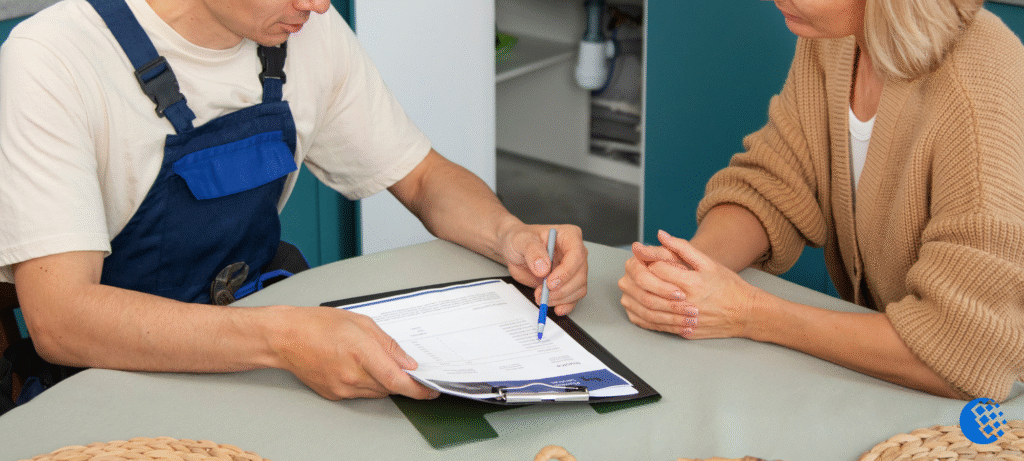When you decide to sell your property, one of the most important steps before settlement is the building inspection. A licensed Building Inspector will assess every essential system in your home, including plumbing, electrical, and gas appliances.
Many sellers are surprised to learn that gas appliances such as heaters, cooktops, and hot water systems are among the most common causes of inspection failure. A failed inspection can delay your property sale, reduce buyer confidence, or even lower your final sale price. Understanding why gas appliances fail inspection and how to address these issues early can save time, stress, and unnecessary costs before listing your property.
Common causes of failure
Outdated gas fittings and connections
Many older homes have gas fittings that no longer comply with current safety regulations. Over time, seals and valves can wear out, causing small leaks or reduced efficiency—issues that a licensed Building Inspector will quickly identify.
While these problems might not be immediately dangerous, they can still lead to inspection failure because they don’t meet today’s safety standards. Replacing old fittings before inspection ensures your home meets up-to-date compliance requirements.
Poor ventilation and combustion issues
Proper ventilation is critical for gas appliances to burn fuel safely and efficiently. Blocked or incorrectly installed vents can cause dangerous gases, such as carbon monoxide, to build up indoors.
During inspections, airflow problems, deteriorated flues, or faulty exhaust systems are major red flags—even if your appliances appear to function properly. These issues must be rectified before you can pass inspection.
Missing or expired compliance certificates
All gas appliance installations must be certified by a licensed Gas Plumber. Missing or outdated compliance certificates are a leading cause of failed inspections. Without a valid certification, a buyer’s solicitor or conveyancing lawyers may question the legality or safety of your gas systems.
To ensure a smooth sale, have a qualified Gas Plumber Adelaide inspect and recertify your appliances before the inspection.
How a gas plumber helps
Conducting thorough safety tests
A certified Gas Plumber in Adelaide performs detailed pressure and leak tests to detect hidden faults in your gas system. These checks identify issues that homeowners often overlook and help prevent safety problems during inspection. By ensuring all joints, valves, and connections are functioning correctly, a plumber minimises the risk of inspection failure.
Replacing or repairing old components
If your home has outdated valves, rusted pipes, or faulty regulators, a professional Gas Plumber can replace or repair them before you list your property. Gas systems older than ten years often no longer meet current safety codes. Routine maintenance ensures your appliances perform efficiently and meet inspection standards without delays or costly post-sale repairs.
Issuing updated compliance certificates
After completing inspections and repairs, your Gas Plumber will issue updated compliance certificates for all gas appliances. These certificates confirm that your system has been tested and complies with Australian safety standards.
Updated certification not only provides peace of mind to buyers but also helps you pass the inspection process quickly. In many cases, these certificates can even speed up settlement by reassuring conveyancing lawyers that your property is compliant.
Preventive measures before listing
Schedule an independent pre-sale inspection
Before potential buyers arrange their own checks, consider hiring a licensed Building Inspector for a pre-sale inspection. This proactive step identifies possible gas issues early, giving you time to make repairs and obtain certification.
A clean inspection report builds buyer confidence, speeds up the selling process, and demonstrates that your home is safe and well-maintained.
Regular servicing and maintenance
Routine servicing from a certified Gas Plumber in Adelaide prevents costly breakdowns and ensures all gas systems meet current regulations. Professional plumbers perform leak tests, check pressure levels, and clean burners for efficient performance.
Consistent maintenance reduces safety risks, improves appliance efficiency, and helps your property pass inspection without unexpected faults or delays.
Keeping records and documentation updated
Keep all compliance certificates, repair invoices, and service records organised and readily available. These documents demonstrate that your gas systems are regularly maintained and safe.
Providing complete and up-to-date documentation during inspection reassures both buyers and conveyancing lawyers, making settlement smoother and faster.
Conclusion
Gas appliance issues are among the most common reasons properties fail pre-sale inspections. Outdated fittings, poor ventilation, or missing certificates can all delay your sale and lead to expensive rework.
To avoid these setbacks, schedule a comprehensive inspection with a licensed Building Inspector, and hire a certified Gas Plumber in Adelaide to test, repair, and certify your appliances before listing. By taking these steps early, you can present your property as safe, compliant, and ready for sale—helping you attract confident buyers and ensure a smooth settlement process.
Frequently asked questions
1. Why do gas appliances often fail during a building inspection?
Gas appliances commonly fail due to old fittings, poor ventilation, or missing compliance certificates. Even if they appear to function well, they may not meet current safety standards.
2. Can I sell my property without gas compliance certificates?
While technically possible, it’s not advisable. Missing certificates can delay settlement and lower buyer confidence. Always have a certified Gas Plumber in Adelaide inspect and certify all gas appliances before listing.
3. How often should I service my gas appliances before selling?
It’s recommended to service all gas appliances at least once a year. Doing so before selling ensures they meet inspection requirements and function safely for the new owners.
4. What does a building inspector check in gas systems?
A licensed Building Inspector reviews all gas connections, fittings, and ventilation systems for leaks or safety concerns. They also verify that your compliance certificates are valid and current.
5. How can I prepare my property for a smooth inspection process?
Start with a pre-sale inspection, hire a certified Gas Plumber in Adelaide for necessary repairs, and ensure all certificates are up to date. Keeping records ready will help conveyancing lawyers and buyers proceed without delay.





